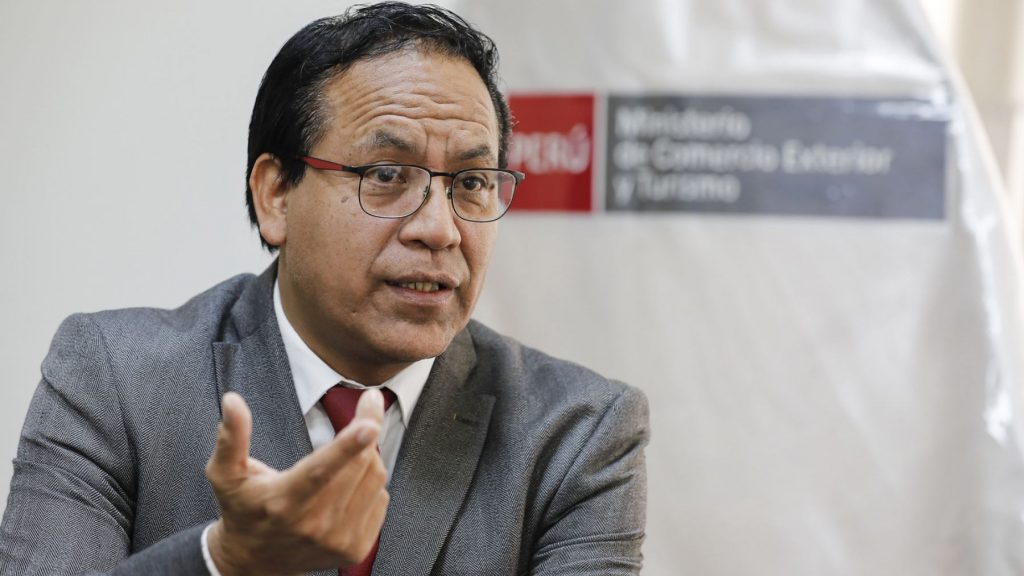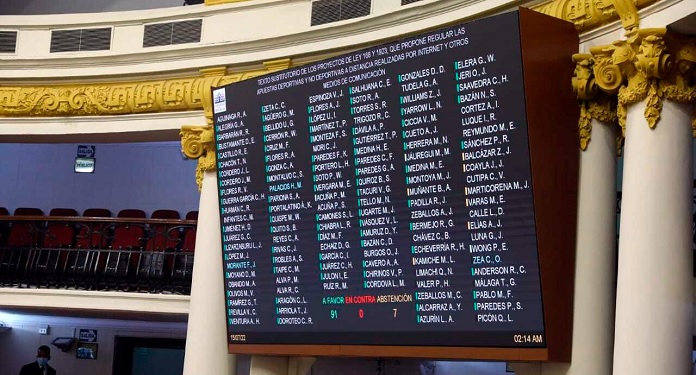The plenary of the Peruvian Congress approved the law that creates a regulatory framework for the exploitation of online sports betting and gambling. The new law, which will come into force after being regulated by the Government through the Ministry of Foreign Trade and Tourism (Mincetur), establishes a direct tax applied to Net Income (Net Win) of 12%.
The substitutive text that combined the opinion of the Economy Commission — based on a proposal by deputy Diana González Palomino — with the bill presented by the Executive — approved last week by the Foreign Trade and Tourism Commission — was approved with 91 votes. in favor, none against and seven abstentions.
During the debate, the head of Mincetur and also a federal deputy, Roberto Sánchez, said that one of the agreements reached to draft the substitutive text was to set the tax on net gains obtained by operators of sports betting and online games at 12%.
In a previous interview with Yogonet, deputy Gonzales anticipated that they would seek to develop ‘a combined text’ between the Executive’s and Parliament’s proposals, so that it could be approved by the plenary, with a tax of 12%. Sánchez noted that this tax levels online activity “with the activities that currently exist, such as casinos and slot machines” and establishes “a level playing field” for both.
“We consider that 12% is a rate that allows us to continue investing and betting on the development of the industry,” Gonzalo Pérez, vice president of the Peruvian Sports Betting Association (APADELA), told Yogonet.
Mincetur boss says new law ensures responsible gaming policy
On the other hand, Sánchez also highlighted that the purpose of the law is “to dictate a responsible gaming policy for the protection of minors and people excluded from participating in games subject to regulation”.
“Responsible and healthy gambling, in a social market economy that mobilizes millions of dollars, is an activity that needs to be taxed. No one can generate profit without paying taxes. The ends, then, are aimed at health, education, the development of tourism and sport”.

In turn, the president of the Economy Commission, deputy Silvia Monteza Facho, was in charge of supporting the opinion and, in her speech, also detailed that the approved substitute text “eliminates the application of selective consumption tax” to players.
In addition, the deputy stressed that “discrimination against online sports betting and gaming operators is also eliminated, so that they are taxed in the same way as Peru-based businesses.”
Allocation of revenue generated by the tax to the gambling sector
Regarding the destination of the revenue generated by the tax, the parliamentarian indicated that of the 40% that are directed to the Public Treasury, it will be distributed as follows: 20% to the Tax Authorities and 20% to the Ministry of Health, which must direct the resources to mental health policies and gambling prevention.
However, the approved rule also establishes a regime of infractions and sanctions, which may involve: reprimand, fine, revocation of administrative authorization, banning for 10 years and definitive banishment.
Likewise, the law establishes that, in the case of granting licenses for physical facilities, municipalities can only grant licenses to owners of online sports betting rooms with prior authorization from Mincetur. It is also specified that game rooms must not be less than 150 meters from temples or educational centers.
At the request of Mincetur, the Ministry of Transport and Communications is obliged to carry out the necessary actions to execute the blocking of websites, IP addresses, URLs and/or computer applications, through which online betting and gaming offers are promoted from platforms of unauthorized technology.




















































